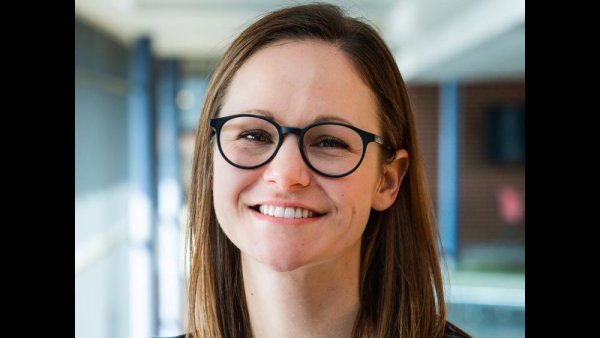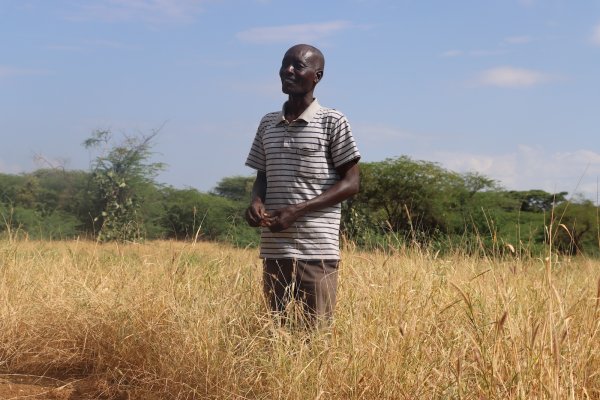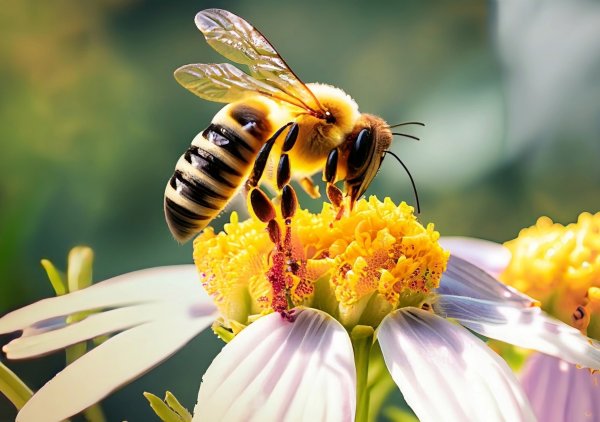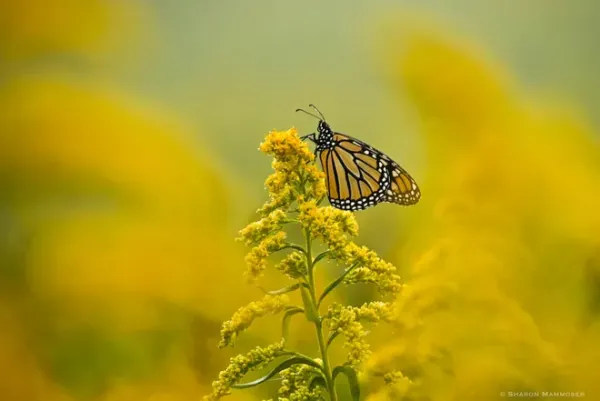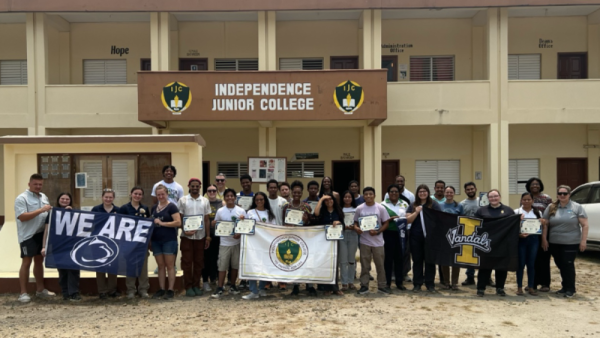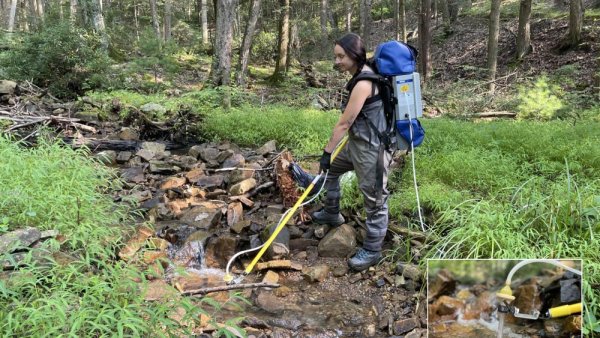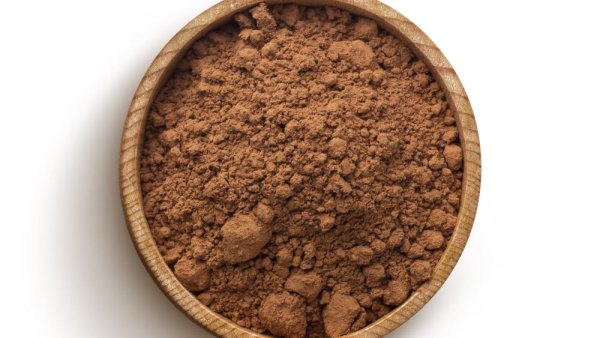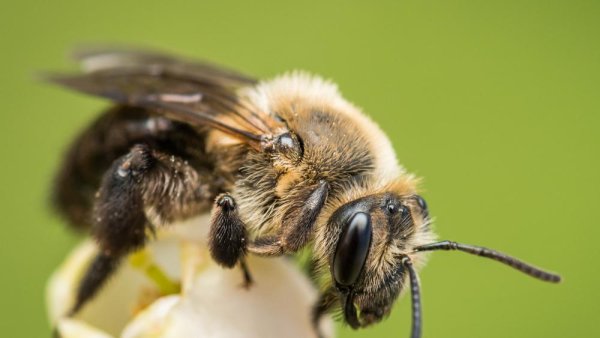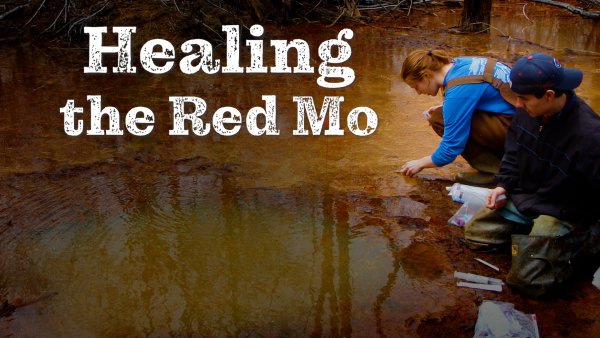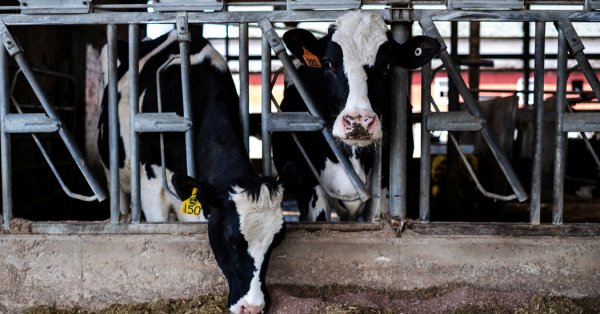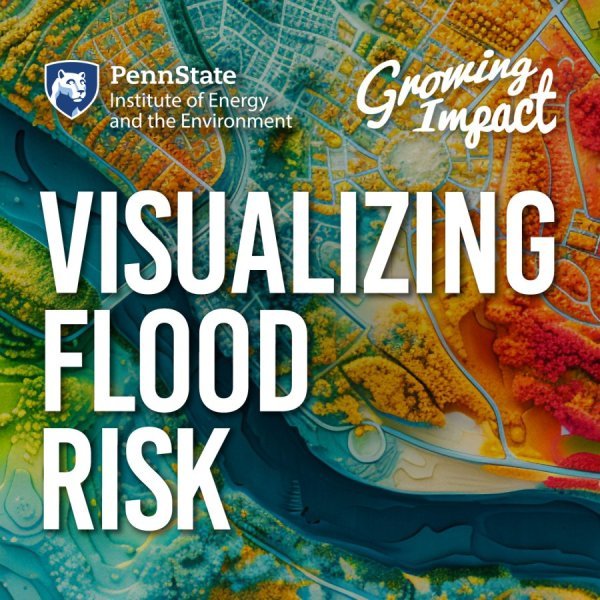New Center for Molecular Investigation of Neurological Disorders director named
| psu.edu
Janine Kwapis, the Paul Berg Early Career Professor in the Biological Sciences at Penn State, has been appointed director of the University's Center for Molecular Investigation of Neurological Disorders, an interdisciplinary research unit within the Huck Institutes of the Life Sciences.
This simple farming technique can capture carbon for thousands of years
| grist.org
Across the world, farmers are turning waste biomass into biochar, improving soils, boosting yields, and creating a new source of income. This article mentions Penn State's PlantVillage project.
Honey bees spread viruses to bumblebees in the spring
| earth.com
The experts found that honey bees consistently carried higher levels of viruses compared to bumblebees, particularly in the spring. This article quotes Heather Hines, associate professor of biology and entomology.
Habitat at Home: Goldenrod is glorious fall-blooming flower, powerful pollinator magnet
| citizen-times.com
Goldenrod, the glorious fall-blooming flower, is critical for monarch butterflies as they are passing through WNC on their way to Mexico. This article quotes Penn State Extension expertise.
Program awarded $750,000 to train future educators in global food security
| psu.edu
A project aimed at helping prepare undergraduate students to serve as future agricultural educators has received $750,000 in renewed funding from the U.S. Department of Agriculture’s National Institute of Food and Agriculture.
$1.95M NSF grant to fund novel study of environmental DNA fate in streams
| psu.edu
A bottle of water sampled from a lake or river can reveal what fish, amphibians insects and bacteria are present, thanks to environmental DNA, the genetic material shed by organisms. This way of measuring transforms scientists’ ability to determine the extent of aquatic life in various water bodies, according to a team led by Daniel Allen, assistant professor of aquatic ecology in Penn State’s College of Agricultural Sciences.
USDA grant funds cocoa benefits research to combat obesity-related health issues
| psu.edu
Cocoa may be the dark horse in the race against obesity, according to researchers at Penn State. Nearly one in three adults are overweight and more than two in five have obesity in the U.S., both conditions that come with inflammation-related health concerns. The U.S. Department of Agriculture has awarded a research team, led by Joshua Lambert, professor of food science in the Penn State College of Agricultural Sciences, a three-year, $650,000 grant to characterize the sex-specific beneficial effects of cocoa against obesity-related inflammation and fatty liver disease.
Volunteers record bee biodiversity and discover new species in Pennsylvania
| psu.edu
Community scientists in Pennsylvania have reported multiple new species of bees never before found in the commonwealth through a monitoring program led by Penn State.
Healing the Red Moshannon: The toxic legacy of acid mine drainage
| wpsu.org
Due to the toxic effects of abandoned coal mine drainage, trout have not been seen in Moshannon Creek for generations. “Healing the Red Mo” tells how central Pennsylvania citizens, non-profits, public officials, researchers and students are taking action to clean the water and bring the creek back to life.
‘Worst-case’ disaster for antarctic ice looks less likely, study finds
| nytimes.com
Global warming is putting the continent’s ice at risk of destruction in many forms. But one especially calamitous scenario might be a less pressing concern, a new study found. This article quotes Richard Alley, Evan Pugh University Professor of Geosciences.
How U.S. farms could start a bird flu pandemic
| nytimes.com
The virus is poised to become a permanent presence in cattle, raising the odds of an eventual outbreak among people. This article quotes Troy Sutton, associate professor of immunology and infectious disease.

